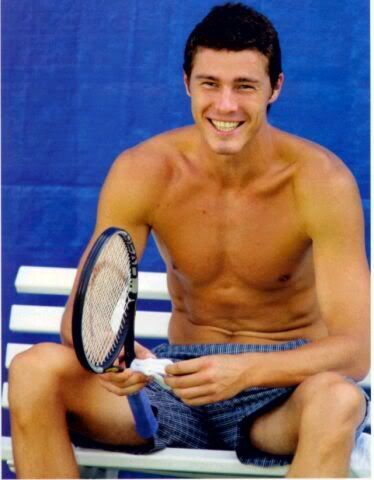Tim's press conference in NY:
TIM HENMAN: Thanks all for coming here this morning. I'd officially like to say that I am going to be retiring after the Davis Cup against Croatia at Wimbledon. I'd also like to say that I'm sorry I wasn't able to let you know sort of firsthand in person, but that was kind of taken out of my control.
From a professional point of view, it's obviously something that I've been thinking about for some time. I think with the issues I've had with my back and sort of the knock on effect that's had with my practice, the way I'm able to prepare for events, probably the way that it's affected my performance has obviously made my life a little bit harder, probably a little bit less enjoyable from that point of view.
And obviously from a personal point of view, you know, with my third with our third child on the way, there's obviously an even bigger incentive to be at home. As I'm sure some of you know, it certainly gets harder and harder to be away from your family. I think that definitely has a bearing, you know, on my decision.
It's also one that I'm very, very excited about. I feel that it's not necessarily the end of things for me; it's obviously a new beginning. I feel that -- I'd like to feel that there's going to be a lot of different opportunities out there for me, you know, lots of different things to explore.
I think in the short term, I'm certainly looking forward to just sort of stepping away from things and enjoying some time at home. I'm sure, whether it's next year or the year after, I'll look at what's out there. I'm sure that will involve tennis. I definitely don't envisage myself stepping away from the game for good because it's been such a big part of my life. I look forward to, as I said, exploring those opportunities.
THE MODERATOR: Questions.
Q. At Wimbledon you said there was still a possibility of you playing next year.
TIM HENMAN: Yeah, I think at that moment in time I probably did hope and probably expect to play at Wimbledon, The Championships, next year. I think when I did start practicing again on hard courts, I was preparing for Washington, kind of the way I felt in my match there, it became a little bit more clear cut for me that, you know, playing in pain, the problems I've had with my back, I felt like it was an uphill battle and one that was getting harder and harder to sort of fulfill.
I feel that, you know, with the level of tennis that I played, the things that I've been able to achieve in tennis, I didn't want to just keep plugging away with the limited rewards I was going to get. I think, if anything, I was pretty clear in my mind around Washington time, when I sat down with Paul and we discussed a few things, that's when I would say I pretty much knew I wanted to stop. From that respect, it wasn't -- it's not something I actually planned, that Davis Cup was going to be my last event. But, you know, given the circumstances, it being at Wimbledon, I think it's something that seemed to fit extremely well with me. It's always been an honor and pleasure to play any event at the All England. I'm really excited about playing there.
I'm sure if I was asked do I want to go back and play Wimbledon one last time, I really sort of feel the simple answer is no, because I've played there so much over the years. I've had some fantastic memories, some of the best memories of my career. A lot of them have been on Centre Court. I always felt like when I've been competing that I've had a chance of winning any tournament, and especially Wimbledon. But I think that obviously is getting harder and harder with the complications that I've had with my back. So for me to just hang around for another nine months just to go out and play Wimbledon for the sake of it, it doesn't really appeal to me. You know, I think to be able to play the Davis Cup there it's going to be very, very special.
Q. The phrase "end of an era" came up. Is that too simplistic a way to put it?
TIM HENMAN: No, from a professional point of view, absolutely, I can see with these two events remaining it is the end of a certain era. From my point of view, it is incredibly exciting. I feel so fortunate what I've been able to achieve in the game. You know, I'll be 33 by the time I do stop. There's so many other opportunities, things that I'd like to do, some of those that do include tennis and some of those that don't. I think one of the important aspects for me is that I do feel so clear in my mind about the decision. I feel it's absolutely, you know, the right time for me. I have no doubts whatsoever. As I've said, I'm incredibly excited about the future.
Q. Did the decision sneak up on you over the past couple weeks or months? Was there a debate in your own mind, Should I or shouldn't I? Looks like I better do it now?
TIM HENMAN: No, not at all. I've obviously had some physical issues this year. I missed the first three months with a problem with my knee. There's no doubt that that makes your life harder. Certainly at my age, your body doesn't recover as quickly as you'd like. I've always said that I appreciated that I was nearer the end of my career than the beginning. Whilst I was still enjoying competing and still playing somewhat pain free, I wanted to take advantage of any opportunities that I had. But it did come clear when I got back on hard courts. It was the first time I played on hard courts in quite a few months. You know, my back didn't react very well at all. That was when I just you know, it's the first time I said to myself, you know, I have to really question this because I can't always prepare the way I want to. I can't compete the way I want to in the matches. That was where it was fairly straightforward, the decision, for me.
Q. What are you most proud of?
TIM HENMAN: I think I definitely will reflect on different moments in my career. I've always said my first (indiscernible) is something that stands out. I think some of the results I've had at Wimbledon. I think my overall consistency, when I reflect, some consistent performances over the years. I think if I can reflect back to, you know, even somewhere like '95 when I was being disqualified at Wimbledon, you know, if I was then told what was going to happen in the next decade or so, you know, I for one would have been pretty surprised. So, yes, I've got a lot of fond memories to look back on.
Q. The match against Moya at Wimbledon, was that one of the most memorable you've had?
TIM HENMAN: I think it was. I think to actually pinpoint individual matches, sometimes it isn't that easy when I've played 700 or something. But I've had so many great matches at Wimbledon, on the Centre Court, as I said, and that was something special. I think obviously the fact of me winning helps. So, yeah, I think that was one that I'll remember fondly.
Q. Have you given any thought of what kind of role you can play in tennis, be it coaching?
TIM HENMAN: I really haven't. I think that's something that does interest. Yeah, in the short term, I just really want to take a step back and kind of step away from the sort of tennis environment and have some normality. Not that it's totally abnormal what we do, but I've sort of reflected at times and I feel I've been a professional for 26 years of my life. You know, a lot of holidays, a lot of my school was all centered around my tennis, where the next training session, practice session was going to be, where the next tournament was. Later on in my career, when I became a professional, where you're going to be flying to, hotel reservations, where you're going to be staying. You know, there's part of me that's really looking forward to leaving that behind, because having done it for such a long time, the novelty has somewhat worn off. I'm sure, as I said, whether it's in the middle of next year or even in 2009, I'll definitely be open to some offers and sit down and discuss what is out there.
Q. (Question about the state of British tennis and Andy Murray.)
TIM HENMAN: No, I don't think it's the worst far from it. I don't think just because Andy's had some injuries, I think you guys have sometimes got short term memories. The beginning of the year, he was probably playing definitely top 5 tennis. You know, that obviously has been cut short by injury. That is part and parcel of being a professional player. You know, with both Greg and I retiring now, it certainly is the end of an era from that point of view. You know, that's -- hopefully the piece has been put in place so the next generation can come through. Andy - fingers crossed - is hopefully going to play a big part of that. No, I don't certainly view it as the worst.
Q. Have you spoken to him?
TIM HENMAN: No, I haven't.
Q. Talk about the pressure of playing for your country at Wimbledon.
TIM HENMAN: I think when I reflect on my record, I'd be the first to admit my record is good at Wimbledon, but it was always a goal of mine to win the tournament. You know, in some respects, yeah, I could say -- am I disappointed I didn't win it? Yeah, I think I am. But, again, at the end of the day when I reflect on my career, I know that I was able to maximize my potential. I always was out there playing matches and practicing as hard as I could. This is as good as I could have been. And, therefore, I don't think I have too many doubts. Representing my country, I think I was aware of expectation. But I think as an individual athlete in that environment you have to really train your mind to stay away from that because I think that is only going to heighten the pressure that is already on your shoulders. I think when I do reflect on how well I did at Wimbledon to that level, I always did a good job of just trying to control the things I could control. You know, I know the results, the matches I played there, I did, I played some of my best tennis at Wimbledon. That's something that I'll always be very, very proud of.
Q. Do you think, given your junior career, you were actually better than you should have been?
TIM HENMAN: No, I don't think I should have been because I think, you know, if you're out there and you've got a desire and a hunger and a belief, you know, I think that's a big part of the puzzle, is that you've got to believe that you can be, you know, a good player, and I always did. So, no, I've always set my goals, you know, to be out there and work as hard as I could. You know, it's impossible to really know what the future holds, how much you're going to achieve. That's why we play sport, I think, to test yourself against the other players and hopefully the best players in the world. You know, that's what I've enjoyed so much about my career. I think there were plenty of times where, you know, I'd say there was belief, but there was also a lot of hope involved. You know, at 16, when I probably wasn't ranked in the top 10 in my age group in the country, which we all know wasn't exactly a hotbed for talent (laughter), you know, there's definitely a few question marks. But you've got to, A, stick at it and, B, maintain that belief. And that's what I always did.
So, you know, I also understand the environment, you know, that I've been brought up with, with regard to Wimbledon and the press. You know, I'd be the first to admit that I'd probably be judged on whether I won Wimbledon or not. You know, do I think that's right? No, I really wouldn't think that's right. But I've also judged myself against the best players in the world, and therefore being No. 4 in the world and making those semifinals that I did, I think that makes you a good player. I've never sort of professed to being any better than that. But I think it just gets sometimes tricky when, you know, you're just being judged by one tournament, which I understand is easy to do when you live in that country.
Q. If you could have one match back in your career, is there one?
TIM HENMAN: I mean, if I could change circumstances, yeah, against Goran, obviously I would ask for it not to rain. But that's tricky.
Q. Any disappointments?
TIM HENMAN: I'd say I'm disappointed that I lost that match. I'm disappointed that perhaps I didn't win Wimbledon. But, you know, at the end of the day, I don't necessarily have regrets. People say, Would you change anything about your career? Absolutely. I would do lots of things differently. But I think that's hindsight. I think if someone says, No, I wouldn't change things if they had the opportunity, I think that was pretty stupid.
But I can reflect on a lot of different scenarios and I know the way I've always approached my game, my career and my profession has always been a hundred percent. You know, if people want more than that, I think you realize what you're trying to deal with.
Q. What do you feel about the state of British tennis now?
TIM HENMAN: I think there's no way that you can we're going to be doing a fair bit of reflecting, I guess the nature of this interview, if you were going to say '96, '97, with the success that Greg and I were starting to have, if you would have said, fast forward to 2007, we were both going to retire, and there's no real future generation, I'd be incredibly disappointed. So, therefore, I am very disappointed. I would then say that looking at this moment in time now, with the structure that's been put in place, I can say I'm very excited. Talking about what I'd like to do in the future, I'd absolutely be interested in being involved, whenever that may be, because I feel now there's a structure that's in place where, you know, you can certainly see things happening. There's standards that are being set, there's personnel, people working there that I've got the utmost belief in. I guess it's just disappointing that it's taken that long.
Q. A lot of people in your career have had a lot of influence on it. Can you reflect on two or three people that have been big influences on you, what they've done for you?
TIM HENMAN: I thought I'd probably have to go through this all again after Davis Cup because I didn't want to necessarily go down a list of thank yous right now because I still feel like I've got two important events.
But, you know, off the top of my head, first and foremost my parents. They were the ones that gave me the opportunity in the first place. Without them, I definitely wouldn't have been able to achieve what I've achieved.
You know, moving forward, David Lloyd and Jim Slater played a big part, the coaches I had there. Then obviously when I moved from there, David Felgate was someone that I worked with for nearly nine years. He was my first sort of professional coach, had a big influence. So, yeah, I mean, I've always had fantastic support because I think there's always been -- since I've been professional there's been really very few people that have been involved, and that's because I think, A, I've got pretty good judgment, and B, you know, there's a loyalty there, and that's something that I'll always sort of cherish. I've had people around me that are absolutely the best and were out there for me a hundred percent of the time. You know, I think that's pretty rare in the environment.
Q. September will be your last match. Not beyond that?
TIM HENMAN: Yes.
Q. Will it still be Henman Hill?
TIM HENMAN: You've got to keep it that way. You keep writing about it, and I'm sure it will be.

Q. What will you miss most?
TIM HENMAN: Yeah, no, I was thinking about that. I think the competition, yeah. I think that's the biggest aspect, the competition, playing on stadium courts like these, it's really the final piece of the puzzle. Winning or losing is what my career has always been about. Winning has been the best and the losing has probably been the worst. But I also appreciate there were so many other parts to that that go into giving myself the opportunity of competing. That's probably been what I struggled with in the last six, nine, twelve months. So, yeah, I think the competition, the chance to test yourself against the best players in the world.
Q. What would you like to be remembered as most? Is there a danger that people might remember you as being the man that didn't win Wimbledon?
TIM HENMAN: There's many people that don't win Grand Slams. That's what I was talking about. You know, it's difficult for me to say. If I was going to say professionally, you know, I was a good player that worked hard and gave everything he got to his profession. I don't think there's anything else you can ask. I don't think you could ask for more than that.
Q. How would you like your fans to remember you?
TIM HENMAN: That's what I just said.
Q. Playing your final Grand Slam. Comment on this tournament, what this tournament means to you, where it sort of stacks up, the relevance?
TIM HENMAN: Yeah, it's a major. It's right up there with the biggest tournaments in the world. It's still a little bit behind Wimbledon, but that's the way it will be. It's a fantastic event. You look at how it's grown. I haven't been around as long as some, but you see the facilities, you see what a sporting event it is, not just in tennis terms. It's really grown and grown. It's always been a pleasure to play here. I've had some good times, and certainly making the semis in '04 was a great run for me. I'll always -- I'm going to look forward to this event being my last Slam. But I'll always be watching

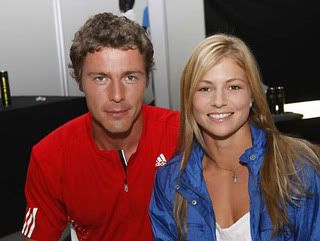





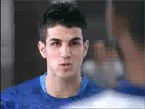
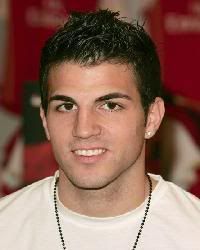
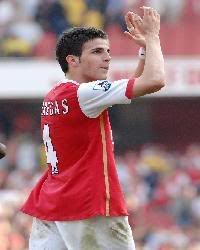
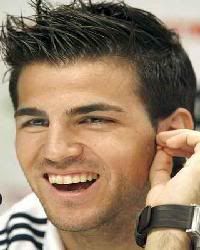


 Cool ;D ;D ;D
Cool ;D ;D ;D


